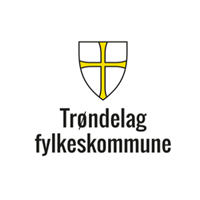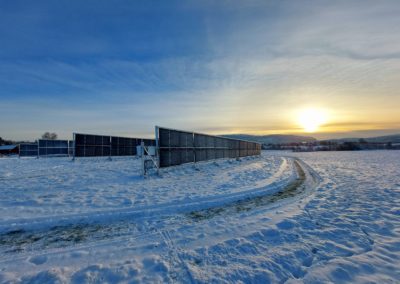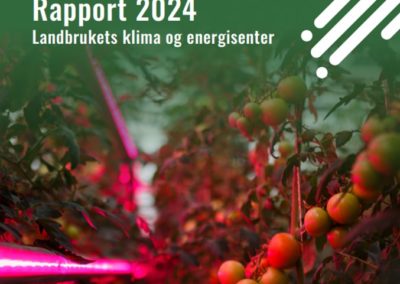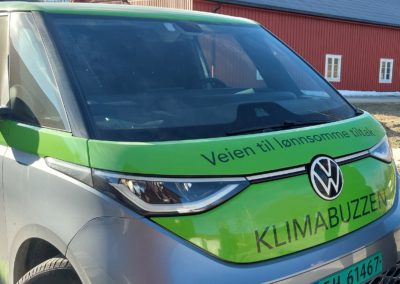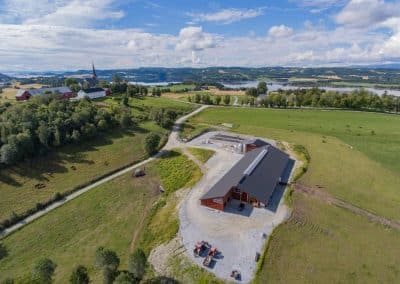Our ambition is to approach zero emissions from our farm operation. Through close collaboration with various knowledge communities, we will in the coming years work towards zero emissions both in buildings, in terms of energy use, measures in the barn and measures out in the fields. Mære is a pilot area in ZEN (Zero Emission Neighborhood) where buildings and energy use are the main focus. FME-ZEN is led by NTNU and SINTEF, and Trøndelag County Council and NTE are active partners in the development of the zero-emission farm.
Here you can see the film NTE has made about Mære as a pilot area in ZEN:
The press release:
Mære agricultural school was recently chosen as a new pilot area in FME ZEN. This means that the research centre, which is led by NTNU and SINTEF, will look at the possibilities of reducing climate emissions in connection with the operation of the farm facility down to zero.
This, together with various measures and an environment of competence within the agricultural sector, means that Trøndelag county council now wants to facilitate a broad mobilization for the development of Norway's first modern net zero emission farm facility on Mære, says specialist adviser Torger Mjønes at the county council.
Radical change necessary
Agriculture accounts for around nine percent of Norway's total direct greenhouse gas emissions, and according to the UN climate panel, we need a radical change in how we produce food.
In their latest report (August 2019), the panel's researchers state that it will be impossible to keep the global temperatures at a safe level without changing how we produce food, what kind of food we eat and how we manage the world's land areas.
- The need to develop good pilot models is great - nationally, but also as a contribution to competence development internationally, says center manager in FME ZEN, Arild Gustavsen.
Mobilizes different professional environments
Mære agricultural school has a total building area of approximately 18,000 m2, where in recent years they have acquired a local heating system based on energy harvesting from tomato greenhouses, a new wooden dairy barn that is naturally air-conditioned, a dairy cow barn with roof-integrated solar cell system and a dormitory building with passive house standards and solar cells. In addition, a new stable is now being planned which will probably meet the criteria for ZEB-O, which is an ambition level for zero-emission buildings.
The lake environment is already a good innovation arena for R&D environments and various suppliers in the agricultural sector. Among other things, an R&D team has been established which works with the development of facilities and organisation, such as the R&D and demonstration arena.
Now the agricultural school will therefore collaborate with NTNU, SINTEF, NTE (Nord Trøndelag Elektrisitetsverk) and Trøndelag county municipality to become a new, national innovation arena.
- By gathering different areas of expertise around a common vision of the zero-emission farm, different experiences will be able to contribute to increased sustainability within an important sector, says development manager at Mære Tove Hatling Jystad.
Processes on the way to the zero emission farm
The researchers and Trøndelag County Council envisage parallel processes on the way to the net zero emission farm on Mære: Measures for reduced greenhouse gas emissions (including energy optimisation, conversion to energy carriers with a lower climate footprint and reduction of direct emissions such as methane and nitrous oxide), measures for energy production (including solar energy, energy harvesting , biogas and other types of bioenergy) and better agronomy (including carbon storage with measures to increase carbon content in topsoil).
- The main part of the activity for the pilot area will be linked to pilot criteria such as greenhouse gas emissions, energy, flexibility, economy and innovation, says executive director Svein Olav Munkeby in NTE.
Facts about FME ZEN:
Research Center for Zero Emission Areas in Smart Cities (FME ZEN) shall contribute to enabling the transition to a low-emission society by developing sustainable areas with zero greenhouse gas emissions. The center is a research center for environmentally friendly energy designated by the Research Council of Norway. Through FME ZEN, municipalities, businesses, government agencies and researchers collaborate closely to plan, develop and operate areas without greenhouse gas emissions. More efficient energy use, production and use of renewable energy will contribute to improving the environment locally and to reaching national climate targets. One of the measures to get there is the establishment of zero-emission areas (pilot projects) which will function as innovation arenas and testing areas for technologies and solutions developed in the research centre. NTNU is the host organization and manages the center together with SINTEF Community and SINTEF Energi.
Facts about Mære agricultural school:
Mære agricultural school is owned by Trøndelag county municipality and located in Steinkjer municipality. The school offers education for young people (VGS) and adults in natural farming, and at the same time runs a school farm with dairy cows, beef cattle, sheep, pigs, tomato production, grain, potato and grass production. At the school's development department, courses are offered in agriculture, forestry, local food production and climate/energy measures in agriculture. Each year, the school has over 1,000 farmers on various courses and other events.
In 2015, the county municipality established the "Agricultural Climate and Energy Centre" at Mære; an arena for R&D, knowledge dissemination and various demonstration facilities. The development of the center has taken place in close collaboration with the agricultural organisations. The school has in many contexts (greenhouse network, pilot use of solar energy, test of renewable diesel and precision agriculture) established groups of farmers/gardeners who participate together with the school in the development.
Facts about NTE:
NTE is an energy company with headquarters in Steinkjer and operations throughout Trøndelag. The company has worked with renewable energy for 100 years, and has 26 hydropower plants in Trøndelag, Nordland and Sweden. Annual production is approx. 4,000 GWh. NTE also has a telecom business with 49,000 fiber customers in central Norway. The company has 750 employees, a turnover of NOK 3.2 billion and is owned by 23 municipalities in the old Nord-Trøndelag.

